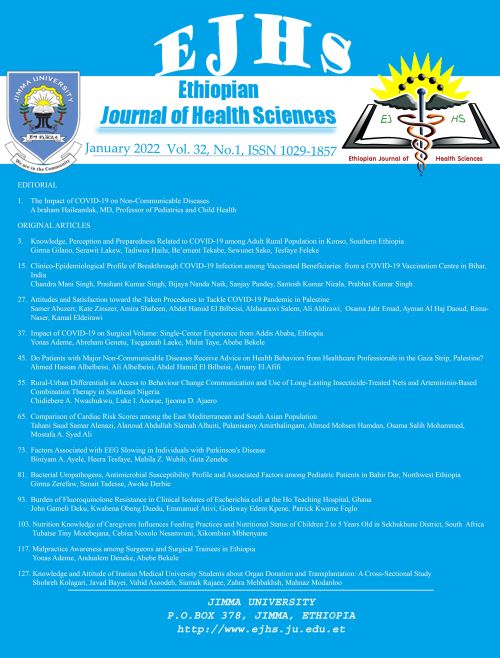Main Article Content
Malpractice Awareness among Surgeons and Surgical Trainees in Ethiopia
Abstract
BACKGROUND: In Ethiopia, a country where seeing medical errors is not rare, there is a lack of data concerning the overall awareness of medical malpractice issues among physicians. A recent study showed that 80% of malpractice claims in Ethiopia are related to some form of surgery or operation room activities.
METHODS: A cross-sectional survey was conducted among surgeons and surgical trainees. Data were collected anonymously by an online survey using Google forms through a 56-items structured questionnaire. Subsequently, the data were analyzed and reported employing nonparametric statistical methods with
SPSS software package 26.
RESULTS: In our sample, the overall awareness regarding medical malpractice was relatively low. Surgery on a wrong patient (71.1%) was the most commonly reported form of malpractice, whereas unintended damage to adjacent organs (10.8%) was the most frequently disagreed up on form. In the event of a medical error, the majority (59.6%) reported readiness to disclose their error to the patient. The most common mentioned reason for not revealing a mistake was a threat of physical or verbal assault (68%). A significant number of respondents, i.e., 120(59.1%), reported being physically/verbally assaulted by a patient or their attendants at some point in their practice.
CONCLUSION: The findings of our study provided a general picture of surgeons' and surgical trainees' knowledge, attitude, and practice regarding medical malpractice. This study recommends more robust ethics and law training modules to surgical trainees, refresher courses to surgeons, and advanced training programs in ethics and law.






